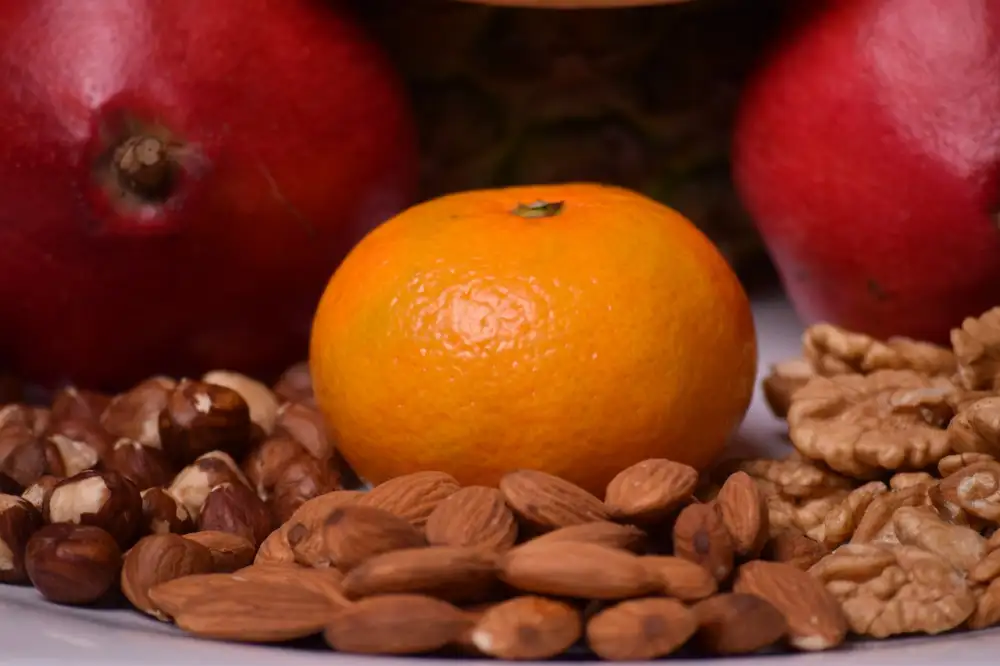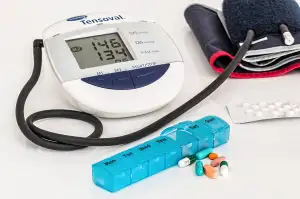Trimming the Waistline: Discover Delicious and Nutritious Weight Loss Meals

- Importance of a Balanced Diet for Weight Loss
- Incorporating Lean Proteins for Satiety and Muscle Building
- Including Fiber-rich Foods for Digestive Health and Weight Management
- Emphasizing Whole Grains for Long-lasting Energy and Nutrient Density
- Adding Healthy Fats for Flavor and Satiety
- Utilizing Fresh Fruits and Vegetables for Essential Vitamins and Minerals
- Avoiding Processed Foods and Added Sugars for Optimal Weight Loss
- Meal Ideas: Breakfast, Lunch, and Dinner Options for Healthy Weight Loss
In today's fast-paced world, maintaining a healthy weight can be a challenge. However, with the right approach to nutrition, it is possible to shed those extra pounds and achieve your weight loss goals. One of the key factors in successful weight loss is adopting a healthy meal plan. By focusing on nutritious and delicious meals, you can trim your waistline while still enjoying flavorful dishes. In this article, we will explore the importance of a balanced diet, incorporating lean proteins, fiber-rich foods, whole grains, healthy fats, fresh fruits and vegetables, and avoiding processed foods and added sugars. We will also provide you with some meal ideas to kickstart your weight loss journey. So let's dive in and discover how you can create mouthwatering meals that will help you achieve sustainable weight loss.
Importance of a Balanced Diet for Weight Loss
A balanced diet is crucial for successful weight loss. It provides the body with all the essential nutrients it needs while promoting a calorie deficit. This means consuming fewer calories than you burn, leading to weight loss. A balanced diet includes a variety of foods from different food groups, such as lean proteins, fruits and vegetables, whole grains, and healthy fats. These foods provide the necessary vitamins, minerals, fiber, and antioxidants that support overall health and well-being. Additionally, a balanced diet helps regulate blood sugar levels, control cravings, and maintain energy levels throughout the day. By focusing on a balanced diet rather than restrictive eating patterns or fad diets, you can achieve sustainable weight loss and long-term success in managing your weight.
Incorporating Lean Proteins for Satiety and Muscle Building
Incorporating lean proteins into your meals is essential for both satiety and muscle building during weight loss. Protein helps to keep you feeling full and satisfied, reducing the temptation to snack on unhealthy foods. Additionally, it plays a crucial role in repairing and building muscles, which can help boost your metabolism and burn more calories. Opt for lean sources of protein such as chicken breast, turkey, fish, tofu, beans, and low-fat dairy products. These options are not only low in calories but also packed with essential nutrients that support overall health.
Including Fiber-rich Foods for Digestive Health and Weight Management
Including fiber-rich foods in your diet is essential for both digestive health and weight management. Fiber adds bulk to your meals, making you feel fuller for longer and reducing the likelihood of overeating. It also aids in digestion by promoting regular bowel movements and preventing constipation. Some excellent sources of fiber include whole grains, legumes, fruits, vegetables, and nuts. By incorporating these foods into your meals, you can improve your gut health, regulate your appetite, and support your weight loss goals.
Emphasizing Whole Grains for Long-lasting Energy and Nutrient Density
When it comes to weight loss, incorporating whole grains into your meals is a smart choice. Whole grains are packed with nutrients and provide long-lasting energy, keeping you satisfied throughout the day. Unlike refined grains, which have been stripped of their natural fiber and nutrients, whole grains retain all parts of the grain kernel. This means they are rich in fiber, vitamins, minerals, and antioxidants. Some examples of whole grains include quinoa, brown rice, oats, barley, and whole wheat. These grains not only provide essential nutrients but also help regulate blood sugar levels and promote healthy digestion. So next time you're planning a meal for weight loss, make sure to include whole grains for their nutrient density and sustained energy benefits.
Adding Healthy Fats for Flavor and Satiety
Contrary to popular belief, not all fats are bad for you. In fact, incorporating healthy fats into your weight loss meals can actually benefit your waistline. Healthy fats, such as those found in avocados, nuts, and olive oil, provide a rich and satisfying flavor to your dishes while keeping you feeling fuller for longer.
Including these healthy fats in your meals can help curb cravings and prevent overeating. They also play a crucial role in nutrient absorption, as certain vitamins require fat to be properly absorbed by the body. So don't shy away from adding a drizzle of olive oil to your salad or enjoying some almond butter on whole grain toast.
Remember, moderation is key when it comes to incorporating healthy fats into your diet. While they offer numerous benefits, they are still calorie-dense, so be mindful of portion sizes. By including these nutritious fats in your weight loss meals, you can enhance both the taste and satiety factor without compromising your goals.
Utilizing Fresh Fruits and Vegetables for Essential Vitamins and Minerals
Fresh fruits and vegetables are essential components of a healthy weight loss meal plan. They are packed with essential vitamins and minerals that support overall health and well-being. Incorporating a variety of colorful fruits and vegetables into your meals not only adds flavor and texture but also provides important nutrients that can help boost your immune system, improve digestion, and promote weight management. Whether enjoyed raw, steamed, or roasted, these nutrient-rich foods should be a staple in any weight loss diet.
Avoiding Processed Foods and Added Sugars for Optimal Weight Loss
When it comes to optimal weight loss, avoiding processed foods and added sugars is crucial. Processed foods are often high in calories, unhealthy fats, and sodium, which can hinder weight loss efforts. These foods also lack essential nutrients and fiber, leaving you feeling unsatisfied and craving more. Added sugars, found in sugary drinks, desserts, and processed snacks, can lead to weight gain and increased risk of chronic diseases. Instead, opt for whole foods like fruits, vegetables, lean proteins, and whole grains that provide the necessary nutrients for healthy weight loss. By eliminating processed foods and added sugars from your diet, you'll not only shed pounds but also improve your overall health.
Meal Ideas: Breakfast, Lunch, and Dinner Options for Healthy Weight Loss
For a satisfying and nutritious breakfast, try a spinach and mushroom omelette with whole wheat toast. This protein-packed meal will keep you full until lunchtime.
For lunch, opt for a colorful salad with grilled chicken breast, mixed greens, cherry tomatoes, cucumber slices, and a light vinaigrette dressing. This low-calorie option provides plenty of vitamins and minerals.
Dinner can be a delicious stir-fry made with lean protein like shrimp or tofu, along with an assortment of fresh vegetables such as bell peppers, broccoli, and carrots. Serve it over brown rice or quinoa for added fiber and nutrients.
Remember to control portion sizes and choose healthy cooking methods like grilling or baking instead of frying. These meal ideas will not only help you shed pounds but also provide the necessary nutrients for a well-balanced diet.
In conclusion, achieving and maintaining a healthy weight is not just about following a fad diet or quick-fix solutions. It requires making sustainable changes to our eating habits and lifestyle choices. By incorporating balanced meals that are rich in lean proteins, fiber, whole grains, healthy fats, and fresh fruits and vegetables, we can nourish our bodies while promoting weight loss. It's important to avoid processed foods and added sugars as they can hinder our progress. Remember, long-term weight management is about finding a balance that works for you and making gradual changes that you can sustain over time. With dedication and consistency, you can achieve your weight loss goals while enjoying delicious and nutritious meals.
Published: 10. 12. 2023
Category: Health



